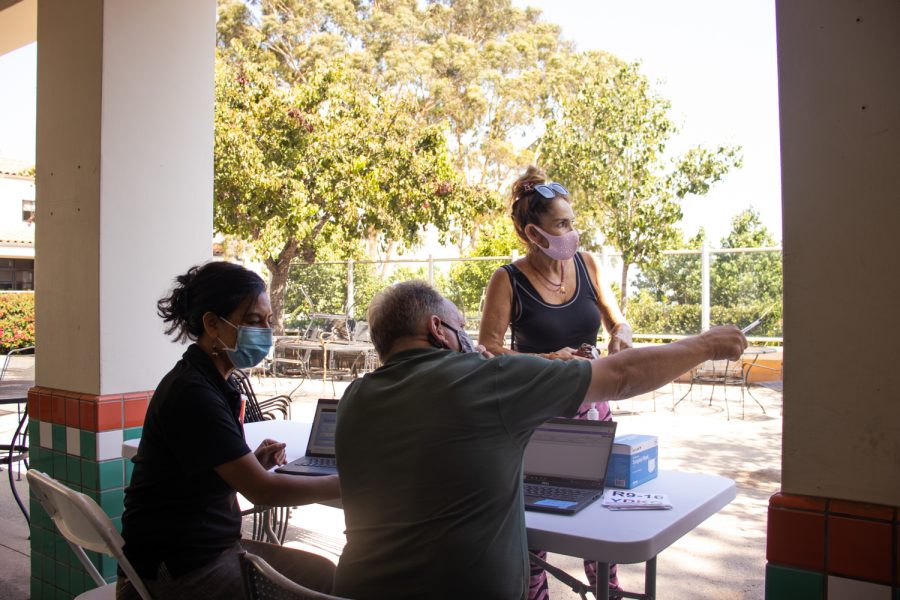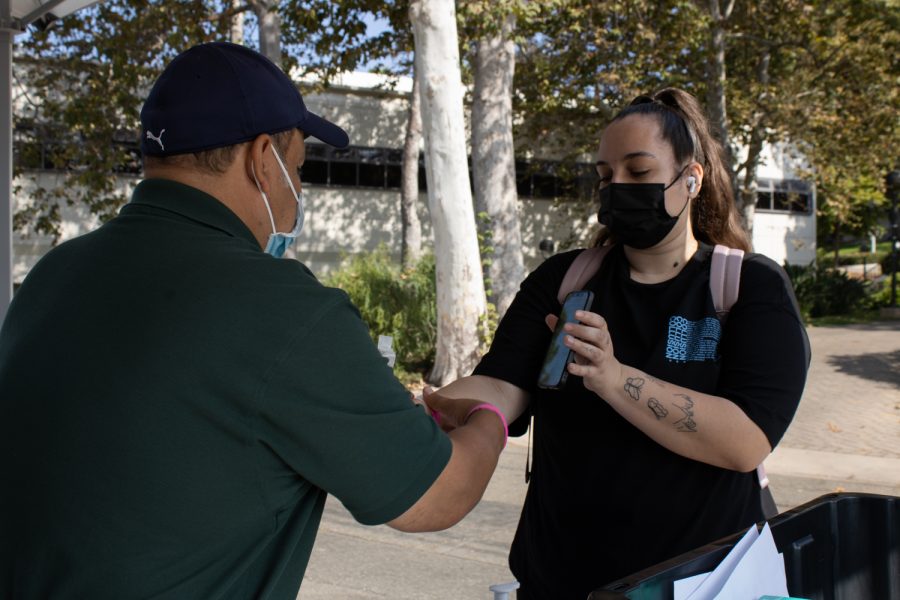With vaccinations becoming more readily available to the general public, there is a growing debate as to whether every American should be vaccinated.
Those in support of vaccination feel like it’s the only way for the country to overcome the virus. Others are against vaccinations, weary of any negative effects it could possibly bring to one’s physical health.
This week The Channels staff debates whether it should be mandatory for Americans to be vaccinated against COVID-19.
 Leah Dautoff, Staff Writer
Leah Dautoff, Staff Writer
The emergence of COVID-19 changed the world overnight. Seeing loved ones, suddenly, was dangerous (and potentially deadly) and social gatherings were restricted.
The only way to return to any sense of normalcy is a fully vaccinated society.
COVID-19 is a highly infectious airborne disease-causing respiratory illness, most threatening to older generations and people with underlying health problems.
The economic shutdown caused by the pandemic created a crisis for businesses and workers.
For many people, losing their jobs meant losing their ability to provide for themselves and their families.
Working generations were not the only ones heavily affected. Teens also lost many milestones— graduation, prom, entire seasons of high-school sports and a year of on-campus socialization.
Kids are losing the ability to make friends and develop critical social skills.
Repairing the economic damage that has been made, and giving kids the lives that were cruelly taken from them, would be a lot easier if the COVID-19 vaccine were mandatory.
Each vaccine being distributed has undergone intensive monitoring. Many don’t feel any major side effects, and any side effects that are present are very common with low-risk.
“COVID-19 vaccines are safe and effective,” according to the Center for Disease Control and Prevention (CDC) website. “COVID-19 vaccines were evaluated in tens of thousands of participants in clinical trials. The vaccines met FDA’s rigorous scientific standards for safety.”
Each vaccine being distributed has undergone intensive monitoring. Many don’t feel any major side effects, and any side effects that are present are very common with low-risk.
There’s virtually no downside to receiving the COVID-19 vaccine and doing so could help us return back to a fully functioning society without fear.
People would no longer be scared of those around them if everyone is vaccinated. Businesses could begin to rebuild the customer base and kids could experience a traditional childhood again.
We can never regain the lives that were taken or memories that weren’t made, but getting the vaccine could give each other the chance to live again, the way humans were meant to—freely.

Eric Evelhoch, Staff Writer
“To mask, or not to mask?”
That is a question that has politicized the response to the COVID-19 pandemic, which after over a year appears finally beginning to be under control.
Despite the increasing availability of the three vaccines authorized and recommended by the CDC, it would be unwise to enforce federally mandated vaccinations.
Creating a “vaccine passport” is one of the most-discussed ideas for creating a blanket federal policy today. Such passports could then become legally required before participating in public activities such as air travel or attending a movie theater.
Portions of the population have regularly protested against COVID-19 protections, leading to states acting against CDC guidance.
The latest in this trend is Texas and Florida governors enacting executive orders against any potential federal requirements of “vaccine passports.”
Currently, vaccination recipients are given a card issued by the CDC noting their status. State health departments also log the information, and can provide replacements should something happen to the original card.
Considering the high toll of the pandemic, there is a heavy incentive for businesses and institutions to figure out how to use this CDC-issued document.
By letting the market decide, providers of goods and services will be the ones requiring proof, not the government. The cruise-line industry is an example of how companies have begun doing so.
Odds are, those who protect customers best will see the most return.
There are already legal frameworks enforcing proof of vaccinations. Laws exist nationwide requiring children be immunized to attend school or daycare facilities. Several universities and colleges have made vaccination mandatory for students returning to campus.
California expects to open vaccination to the entire adult population by April 15, and with the more widespread availability to re-open economically by June 15.
These “slings and arrows” of political posturing can be quelled by allowing the economy and pre-existing laws to incentivize mass immunization, continuing to calm the pandemic’s “sea of troubles.”
















![Milton Alejandro Lopez Plascencia holds a flag showcasing the United States and Mexico on Feb. 7 in Santa Barbara, Calif. “It’s heartbreaking to see what is happening all across the country,” Lopez Plascencia said. “I [want] my voice to be heard by the community.”](https://www.thechannels.org/wp-content/uploads/2025/05/MGSImmigration-1-1200x800.jpg)



